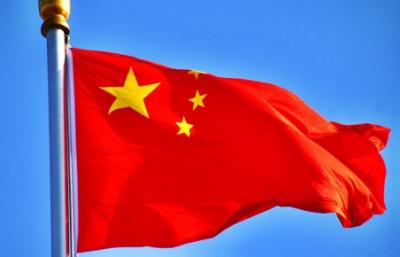China is sending a high-profile official in a last-ditch effort to stop a split in the Nepal Communist Party (NCP) amid an intense competition for geopolitical space with India in the Himalayan Republic. Nepalese media is reporting that the Vice-minister of the International Department of the Communist Party of China (CPC) Guo Yezhou is heading for Kathmandu on Sunday, after Beijing’s hyper-active envoy, Hou Yanqi has completed considerable spadework for the visit.
Hou met faction leaders of the endangered NCP, led by Prime Minister KP Sharma Oli and his heavyweight rival, Pushpa Kamal Dahal, who is also known by his nom de guerre, Prachanda. One-time Oli loyalist Madhav Kumar Nepal is on Prachanda’s side in Nepal’s high intensity power struggle.
China has high stakes in keeping together the divided NCP flock.
First, Nepal is at the centre of the New Great Game between traditional partner India and China. Both rising powers are vying for a deeper influence in the Himalayan republic. Their rivalry in Nepal is part of a bigger and expanding struggle for dominant influence in South Asia as well as the broader Indo-Pacific region, with Myanmar, Sri Lanka, Maldives and island territories of the Indian Ocean emerging as key theatres of geopolitical competition.
Second, Beijing wants to tag Nepal in its larger Belt and Road Initiative (BRI). China is building its own ecosystem of relations, threaded by its Eurasia-centred, BRI, known for its network of cross border roads, railways and cyber-connectivity links across Eurasia. China hopes to pivot Nepal in its direction by building strong cross border connections via Tibet. Nearly three years ago, China became Nepal’s second internet service provider, breaking India’s monopoly in providing internet access to the Himalayan Kingdom. The Hong Kong- and Beijing-based China Telecom Global (CTG)—a company formed in 2012—had teamed up with Nepal Telecom to provide alternate cyber-connectivity to Nepal.
Prior to this move, Nepal had been linked to the global internet network through Indian telecom operators, using optical fibre connections in Biratnagar, Bhairahawa and Birgunj, among others. But CTG’s new terrestrial fibre cable launched in 2016 connects Nepal and China through the Rasuwagadhi border gateway. The new fibre link extends to a Hong Kong Data Centre—one of Asia’s largest global data centres.
CTG had earlier paired with a couple of companies including Global Switch, a leading data centre in Europe, to launch a state-of-the-art data hub in Hong Kong. Undercutting Kathmandu’s reliance on the Kolkata port, Nepal can now access four Chinese seaports — Tianjin, Lianyungang, Shenzhen, and Zhanjiang — for its overseas trade. It can also use Lhasa and Shigatse, two land ports in Tibet along with Lanzhou, on the doorstep of Xinjiang, as its commercial arteries.
But after China pushed into Nepal after India’s botched economic blockade in 2015, New Delhi has recently mounted a robust riposte. The ice was broken in October by India’s spy chief Samant Kumar Goel—the visit following Kathmandu’s decision to make cartographic changes along the India-Nepal boundary. Goel held a key meeting with Oli, which was followed by the visits to Kathmandu of the Army Chief Manoj Mukund Naravne and the Foreign Secretary, Harsh Vardhan Shringla. With the tide turning visibly in New Delhi’s direction,
Hou, the Chinese ambassador, went into overdrive. After meeting Nepalese President Bidya Devi Bhandari, who had complied with Oli’s recent decision to dissolve Parliament, Hou has, more than once met Prachanda and his senior camp followers.
On Friday the Chinese Ambassador called on former Speaker Krishna Bahadur Mahara, wanting to understand the roots of the budding split and chances of reunification, Nepalese media reported. She has also spoken to Madhav Kumar Nepal, the former Prime Minister. On Sunday, PM Oli had stunned the Nepali establishment as well as the Chinese by dissolving Parliament following a bitter power struggle with Prachanda. PM Oli, who also got President Bhandari to sign off on his cabinet’s recommendation to hold parliamentary elections on April 30 and May 10, later announced in a televised address that his rivals within the party had been working to make the NCP dysfunctional.
As the Chinese trouble-shooter arrives in Kathmandu, it not clear whether PM Oli, who had earlier declined requests from Ambassador Hou to meet her, would touch base with the visiting Chinese delegation, led by Guo. Analysts say that chances of such a meeting materialising are low. Earlier Oli had conveyed to Hou that China should not interfere in Nepal’s internal affairs, in deference to the country’s supreme court which had taken cognizance of his decision to dissolve parliament.




















